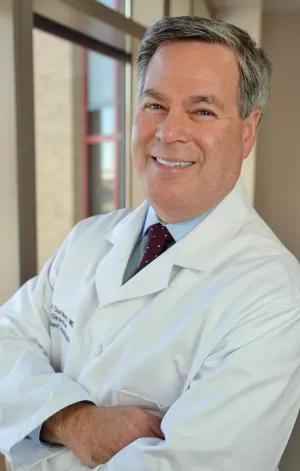
Tufts MC has a long history as a leader in heart transplants, and this addition will allow the liver program to re-launch.
Dr. Gordon is a prominent figure in the field and has practiced in Massachusetts for decades. He answered some questions about his new role.
Why are you passionate about liver transplants?
It's the combination of medicine and surgery. I originally thought when I was in medical school that I was a surgeon. I ultimately decided that being in the operating room wasn't so much fun for me, but I still like the concept of being able to help people immediately – people who are on the brink of death -- to bring them back to life. In a lot of medical fields you can't do that. I gained the ability to think like a surgeon so I get to use that part of my brain as well.
What is your vision for the liver transplant program at Tufts Medical Center?
Tufts had a transplant program and had some very well-known people here both on the medical and surgical side. So there is a legacy here and we'll work to bring back the program to prominence in the liver transplant world. I also want to bring some new things that I've learned in my 28 years of doing this. With a lot of hard work and a little bit of name recognition, we can build this to an even stronger program than it was before.
What should people know about liver transplants?
There are about 8000 liver transplants per year in the US, a number that has been increasing over previous years. What's interesting is that you can do live donor liver transplants, as well. People are generally familiar with live kidney donation, because you have two kidneys so you can give up one. With the liver you only have one but it is the only organ in the body that regenerates and repairs itself. You can remove a part of the liver, and the regenerative capacity of the liver is so tremendous that generally two to three weeks after donating a part of your liver, both the donor and recipient have full-size livers again.
It's important for everyone to get annual liver enzyme tests and a good history because if there are abnormalities, they need to be pursued not ignored.
What are your first steps + what are you excited about?
We have the ability to start from scratch and get the right people in position to create a top notch program, and we have strong support of the institution and administration to get this done.
